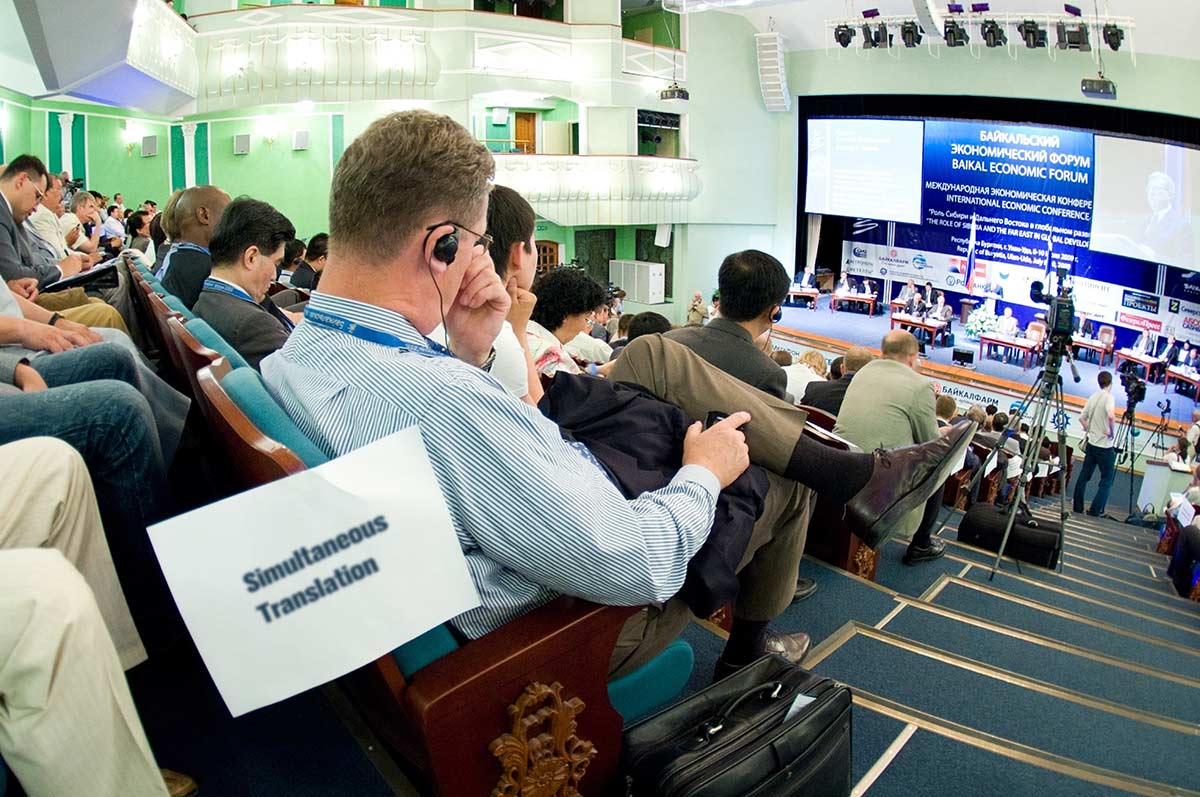Simultaneous translation translates into greater inclusion
- Emily Feng
- April 7, 2016
- 5,184 views

In a nod to the greater representation of linguistic diversity present in local government, a county Board of Education in the Hamptons, a Long Island community, US has announced that it will hire a live interpreter to work in English and Spanish during all subsequent meetings. Another high school in the region has already begun offering Spanish interpretation through wireless microphone at all board of education meetings.
The charge for greater linguistic diversity may be greatest in our schools around the world, where primary education in a second language has fast become mandatory. In the US, Spanish, French, and most recently, Chinese have become standard fare for students looking to study a second language. In China, the standard public education curriculum now includes English classes beginning in third grade. While English is still the language for science and business globally, demand for Spanish, Arabic, Chinese, and Southeast Asian languages has risen considerably as market growth among customers in those languages has skyrocketed.
In the US, where citizens come from all corners of the world, translation is a fundamental prerequisite for being able to offer an inclusive, equal playing field for its citizens. Our lives are becoming more global. Whether at work, at the movies, or in the supermarket, the products, ideas and languages we interact with are increasingly obeying no national boundary. Being able to offer content in multiple languages is thus not only a matter of necessity; it also is a matter of inclusion. Translation allows more voices to be heard, better discussions to happen, and better outcomes to result.
Board of Education meetings in the US serve as an important mechanism in local government for ensuring education equality and giving local stakeholders a channel for airing concerns and opinions on key issues. The meetings are open to the public, thus introducing transparency and accountability into the local education system. Being able to include all residents, regardless of their language backgrounds, is thus crucial for ensuring that every voice is heard and included in the decision making process.
Offering live interpreters and translated materials at all kinds of key events – business meetings, international conferences, sports matches, town hall meetings – should become standard operating procedure in our multilingual day and age. The exchange of information free of misunderstanding and mistranslations is absolutely necessary for the “marketplace of ideas” to flourish. In the case of the East Hampton Board of Education, offering Spanish translation at meetings contributes to their responsibility to uphold a mission of transparency and inclusivity.
However, simultaneous translation is notoriously difficult to master, particularly for high stakes business or political meetings. Recently, the American White House received flak for seemingly censoring the word “Islamist” for simultaneous translations of French president Francois Hollande’s speech on terrorism, in which he is quoted as saying that “Islamist terrorism” is at the “roots of terrorism.” “Islamist” is considered by politically incorrect in the United States.
Sensitive terms that have alternate implications and meanings from language to language are just one example of the key points that simultaneous translators have to pay attention to when working. At local government, business, or Board of Education meetings, the same standards apply, even if the stakes are considerably lower.
Thus, the skill and nuance required for live interpretation makes it a service that demands extremely high quality standards. While scaling up the live interpretation industry is entirely possible, establishing protocols for maintaining quality and standardized service are paramount. Stepes, the mobile translation platform, has been preparing to step into the on-demand interpretation service. These challenges and more will certainly be things to consider before it steps into the interpretation sphere.











